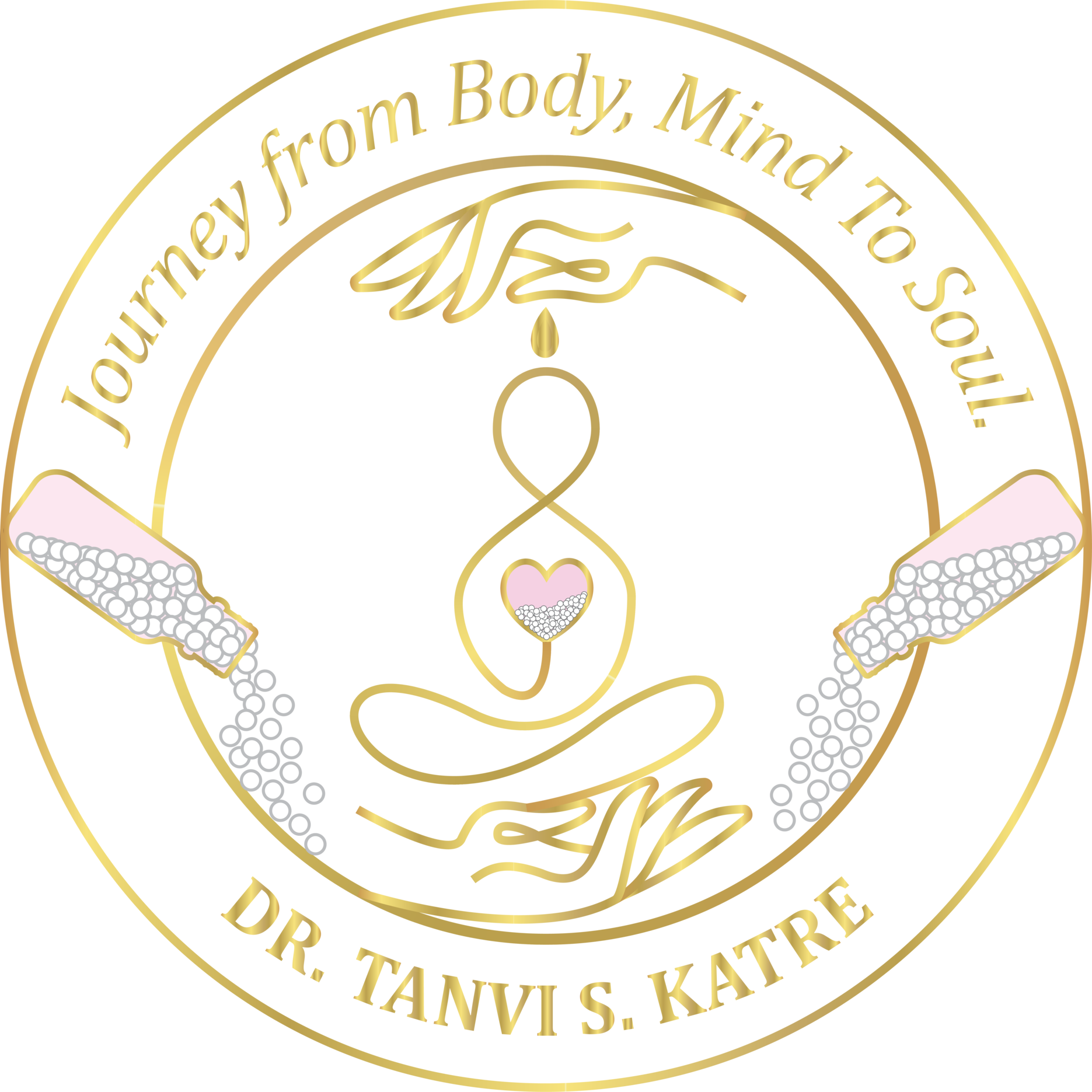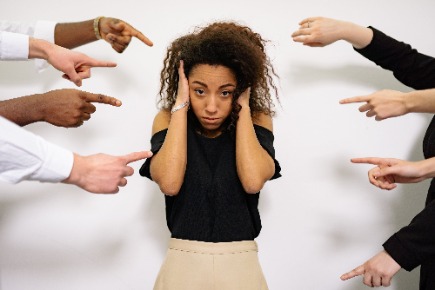Anxiety Disorder
Understanding Anxiety Disorder: Causes, Signs, Symptoms, and the Benefits of Homeopathy Treatment
1. Understanding Anxiety Disorder
In a world where mental health is gaining increasing recognition, there's one common mental health issue that transcends age, gender, and background: anxiety disorder. It's a silent yet powerful force that can affect anyone, young or old, at any point in life. Let's break it down in the simplest way possible. Anxiety disorder is something many of us have heard about, but what exactly is it?
2. What is Anxiety Disorder?
Anxiety disorder is when someone feels super worried, scared, or uneasy most of the time. It's like having a pesky friend who won't leave you alone. This isn't the same as regular worry or being nervous once in a while. It's when these feelings become a big part of your life.
It is like a cloud of worry that hangs over a person. It's when normal everyday concerns turn into a constant, overwhelming feeling of fear and unease. Imagine feeling nervous about something, but this nervousness never goes away. That's what it's like for someone with anxiety disorder..
3. Different Forms of Anxiety:
-
Generalised Anxiety Disorder (GAD):
-
Social Anxiety Disorder:
-
Specific Phobias:
This is when a person feels anxious about many different things, often without any apparent reason. It's like having a never-ending list of worries.
Some people feel extremely anxious in social situations. They might be afraid of being judged or embarrassed, making social interactions difficult.
These are intense fears of specific things or situations, like heights, flying, or spiders. When faced with their fear, people with specific phobias can experience extreme anxiety and panic.
4. It Affects Everyone:
One important thing to know is that anxiety disorder doesn't pick and choose. It can affect anyone, regardless of age. Children, teenagers, adults, and even our grandparents can experience anxiety disorder. It's not limited by age, gender, or background. It's like an equal opportunity troublemaker
5. Causes of Anxiety Disorder
Anxiety disorder can come knocking on our minds for a variety of reasons. Let's keep it simple and clear.
-
Genetic Predisposition:
-
Neurochemical Imbalances in the Brain:
-
Impact of Life Events and Stressors:
Sometimes, anxiety disorder runs in families. It's like having a special code in our genes that makes us a bit more prone to feeling anxious. If someone in our family has anxiety, it might increase the chances of us having it too.
Our brain is like a control center for our feelings. Sometimes, there might be imbalances in the chemicals that help our brain communicate. Think of it as a mix-up in the recipe. When these chemicals aren't in harmony, it can lead to feelings of anxiety.
Life can be challenging, and stressful events are a part of it. Big changes, like moving to a new place or losing someone we love, can make us feel anxious. Even ongoing stress, like pressure at school or work, can add up and create a sense of unease.
6. Identifying Anxiety Disorder: Signs and Symptoms
Anxiety disorder can be a bit like a sneak attack on our feelings. Let's break it down into four simple categories to help spot it.
A. Cognitive Signs (Thinking Too Much):
Imagine your brain is like a car with the engine running non-stop. Cognitive signs of anxiety include:
-
Excessive Worry: It's like having a worry playlist that won't turn off. You keep thinking about problems, even when they're not around.
-
Racing Thoughts: Thoughts zoom around your mind like race cars, and it's hard to slow them down.
-
Catastrophic Thinking: You might imagine the worst things happening, even when they're unlikely.
B. Emotional Signs (Feeling All Mixed Up):
Picture a rollercoaster of emotions. Emotional signs include:
-
Restlessness: You can't sit still, and you're always on the move, like a bouncing ball.
-
Irritability: Little things can make you grumpy or easily annoyed.
-
Fear and Panic Attacks: A sudden wave of fear can crash over you, making it hard to breathe.
C. Physical Signs (Body Reacting):
Your body can send signals, too. Physical signs include:
-
Muscle Tension: It's like your muscles are always on alert, ready for action.
-
Increased Heart Rate: Your heart might race like it's in a hurry.
-
Gastrointestinal Issues: Your tummy might get upset, like butterflies gone wild
D. Behavioral Signs (What You Do):
It's not just what's in your mind or how you feel. Sometimes anxiety shows in what you do, like:
-
Avoidance Behaviours: You might avoid places, people, or situations that make you anxious.
-
Panic Attacks: These can be scary episodes where you suddenly feel overwhelmed and out of control.
-
Compulsive Rituals: You might do certain things over and over, like counting or checking, to try and ease your anxiety.
7. The Gentle Power of Homeopathy in Managing Anxiety Disorder
Let's talk about homoeopathy, a gentle way to help people feel better when anxiety is taking its toll. Think of homoeopathy like a soft hug for the mind, soul and body. Homoeopathy stands out as a holistic and gentle approach, like a caring friend who understands without causing any unwanted side effects.
-
Holistic and Gentle Approach:
-
No Side Effects:
-
Root Causes, Not Just Symptoms:
Homoeopathy is like looking at the big picture. It's not just about treating the symptoms, but understanding what's causing them in the first place. It's like getting to the root of the problem, not just covering it up. It focuses on treating the root causes of anxiety. It doesn’t just address the surface symptoms; it delves deep, aiming to understand the very essence of what’s troubling us. Imagine a gardener tending to the roots of a plant to make it flourish – that's how homoeopathy nurtures our mental well-being.
The best thing about homoeopathy is that it doesn't cause any side effects to our body. Unlike some medications that might bring along unwelcome reactions and side effects, homoeopathy works in harmony with our mind, soul and body, providing relief without adding more stress and side effects.
Instead of just making the symptoms disappear, homoeopathy digs deeper. It doesn’t just address the surface symptoms; it delves deep, aiming to understand the very essence of what’s troubling us.
8. How Homoeopathy Addresses Anxiety Disorder
Okay, so how does homoeopathy do all this? Let's break it down.
-
Personalized Consultation and Assessment:
-
Matching the Right Remedies:
-
Root Causes, Not Just Symptoms:
-
Mind-Body Connection:
-
Dosage, Frequency, and Duration:
-
Monitoring and Adjustments:
When you come to us, we will talk to you and listen you carefully. It's like having a chat with a good friend who really cares about you. We will ask you about your feelings, your worries, and your life.
We have a special kit of remedies. These are like puzzle pieces, and they choose the ones that fit you best. It's not one-size-fits-all; it's all about you.
Instead of just making the symptoms disappear, homoeopathy digs deeper. It doesn’t just address the surface symptoms; it delves deep, aiming to understand the very essence of what’s troubling us.
Homeopathy recognizes that our emotional and mental state can significantly influence our physical health. Stress, anxiety, and unresolved emotional issues can manifest as physical symptoms. Homeopathic remedies are chosen based on an individual's emotional and mental state, as well as physical symptoms, to promote overall balance.
You'll get little doses of the chosen remedies. Just like how your mom knows how much sugar you like in your tea, we know the right amount for you. You take them regularly for a specific time.
We don't just give you the remedies and send you on your way. We stay with you on this journey. We will check how you're feeling and adjust things if needed. It's like having a buddy to help you along the way.

